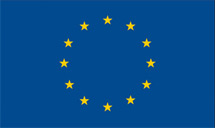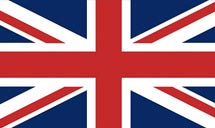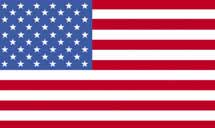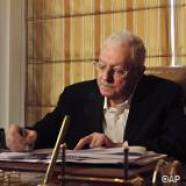Overview
George Haswani is an internationally sanctioned businessman in Syria who stands accused of acting on behalf of the Assad government and serving “as a middleman for oil purchases by the Syrian regime from” ISIS.Associated Press, “AP Interview: Syrian magnate denies buying Islamic State oil,” Yahoo News, March 10, 2015, http://news.yahoo.com/ap-interview-syrian-magnate-denies-buying-islamic-state-141721583.html;
“Syria Designations,” U.S. Department of the Treasury, November 25, 2015, https://www.treasury.gov/resource-center/sanctions/OFAC-Enforcement/Pages/20151125.aspx. Based in Syria and carrying Russian citizenship, Haswani is co-owner of HESCO Engineering and Construction Company and, according to his EU designation, maintains close ties to the Syrian regime.“COUNCIL IMPLEMENTING REGULATION (EU) 2015/375 of 6 March 2015 implementing Regulation (EU) No 36/2012 concerning restrictive measures in view of the situation in Syria,” EUR-Lex, March 7, 2015, http://eur-lex.europa.eu/legal-content/EN/TXT/?uri=uriserv:OJ.L_.2015.064.01.0010.01.ENG.
In 2014, reports emerged that Haswani and HESCO were facilitating illicit oil trade between ISIS and the Syrian regime.“Who is George Haswani who facilitates the sale and purchase of oil between the Islamic State and the Syrian Regime?” (Arabic), all4Syria, September 2, 2014, http://all4syria.info/Archive/165946. According to a source speaking to the Financial Times, Haswani had “direct access” to Syrian President Bashar al-Assad, and brokered contracts between ISIS and the Syrian government. He also operates a natural gas facility in Tabqa, Syria, run jointly by the Syrian regime and ISIS.Sam Jones, “New EU Syria sanctions reveal regime collusion with Isis,” Financial Times, March 7, 2015, http://www.ft.com/intl/cms/s/0/324b07f6-c42a-11e4-9019-00144feab7de.html#axzz3t0faIkKH.
CEP has monitored Haswani's activities and advocated for clarification on his activities, ultimately calling for Haswani's U.S. designation. Following its investigation into ISIS’s oil trading with the Bashar al-Assad regime, CEP CEO Ambassador Mark D. Wallace wrote to John E. Smith, acting director of the U.S. Department of the Treasury’s Office of Foreign Assets Control (OFAC) on March 18, 2015, requesting OFAC’s examination into Haswani’s alleged activities.
“The alleged activities of Haswani and HESCO in supporting violent extremist groups such as ISIS clearly merits a robust and immediate response,” Wallace wrote. “We hope OFAC will take appropriate action to disrupt the alleged ISIS-related business activities of Haswani, HESCO and its affiliated entities and subsidiaries. In doing so, OFAC will severely degrade the ability of extremist ‘enablers’ such as Haswani to facilitate ISIS’s illicit oil trade and establish a powerful precedent, and deterrent for others seeking to put profits before international peace and security.
Wallace wrote Haswani directly on March 6, 2015, posing a series of questions regarding his alleged activities and the activities of his company, HESCO engineering, in illicit oil and gas trading between the Assad regime and ISIS.
“The purpose of this letter is to convey our deepest concern regarding the apparent involvement of your company, HESCO Engineering & Construction Co.’s (“HESCO”), in the illicit oil trade between the Islamic State in Iraq and al-Sham (“ISIS” a.k.a. “ISIL” a.k.a. IS”) and the Syrian government under Bashar al-Assad,” Wallace wrote. “It appears that you and your company HESCO play an indispensable role in facilitating financial support to ISIS.”
George Haswani responded to CEP’s letter with a letter delivered to CEP by facsimile on March 23, 2015. In that letter, Mr. Haswani purports to clarify his company’s involvement with the Nusra Front, ISIS, and the Assad regime.
The European Union sanctioned Haswani on March 7, 2015. The U.S. Office of Foreign Assets Control added Haswani to its list of Specially Designated Nationals on November 25, 2015.“COUNCIL IMPLEMENTING REGULATION (EU) 2015/375 of 6 March 2015 implementing Regulation (EU) No 36/2012 concerning restrictive measures in view of the situation in Syria,” EUR-Lex, March 7, 2015, http://eur-lex.europa.eu/legal-content/EN/TXT/?uri=uriserv:OJ.L_.2015.064.01.0010.01.ENG;
“Syria Designations,” U.S. Department of the Treasury, November 25, 2015, https://www.treasury.gov/resource-center/sanctions/OFAC-Enforcement/Pages/20151125.aspx.
Click here to read the March 18, 2015, CEP letter to the U.S. Department of the Treasury.
Click here to read the March 6, 2015, CEP letter to George Haswani.
Click here to read the March 23, 2015, letter from Haswani to CEP.
Haswani has denied any culpability and appealed the sanctions. In a 2016 interview with the Wall Street Journal, Haswani admitted that ISIS fighters were largely in control of his gas facility in Tuweinan, Syria, but workers had no option but to keep the plant running. Haswani further described keeping the plant operational even under ISIS control as a national service.Jay Solomon and Benoit Faucon, “An Energy Mogul Becomes Entangled With Islamic State,” Wall Street Journal, May 8, 2016, https://www.wsj.com/articles/an-energy-mogul-becomes-entangled-with-islamic-state-1462734922. In March 2017, the EU General Court annulled the European Union’s sanctions against Haswani because of a lack of cited evidence.“Syrian sanctions on George Haswani annulled,” EU Sanctions, March 22, 2017, https://www.europeansanctions.com/2017/03/syrian-sanctions-on-george-haswani-annulled/. In September 2018, the U.S. government sanctioned the UAE-based International Pipeline Construction for “being owned or controlled” by Haswani’s HESCO Engineering.“U.S. Treasury Imposes Sanctions on Assad Regime’s Key ISIS Intermediary and,” U.S. Department of the Treasury, November 6, 2018, https://sy.usembassy.gov/u-s-treasury-imposes-sanctions-on-assad-regimes-key-isis-intermediary-and/.
On August 4, 2020, an explosion in Beirut’s port in Lebanon killed at least 200 people, wounded more than 6,000 others, and destroyed much of the port. Lebanese officials suspect the explosion was caused by negligence in the storage of the explosive fertilizer chemical ammonium nitrate.“Anger Rises After Beirut Blast and Evidence Officials Knew of Risks,” New York Times, last updated August 11, 2020, https://www.nytimes.com/2020/08/05/world/middleeast/beirut-lebanon-explosion.html; Bassem Mroue, Zeina Karam, and Sarah El Deeb, “Negligence probed in deadly Beirut blast amid public anger,” Associated Press, August 5, 2020, https://apnews.com/article/global-trade-ap-top-news-international-news-middle-east-lebanon-4475998de078a93bbe91b7ac9d43ada2. In January 2021, a British government report linked a shipment of 2,750 tonnes of ammonium nitrate in the port to Haswani and Syrian-Russian citizens Mudalal Khuri and his brother Imad. The United States had previously sanctioned the Khuri brothers for supporting the Assad regime. The ammonium nitrate was officially in transit to Mozambique, but reports suggest Beirut was in fact the chemical’s final destination.Martin Chulov, “Businessmen with ties to Assad linked to Beirut port blast cargo,” Guardian (London), January 14, 2020, https://www.theguardian.com/world/2021/jan/15/businessmen-with-ties-to-assad-linked-to-beirut-port-blast-cargo. Suspected British shell company Savaro Limited purchased the chemical shipment in July 2013. It entered Beirut’s port shortly after. Savaro Limited shares a London address with companies formerly directed by Haswani and Imad Khuri, including HESCO, which officially dissolved in November 2020. A Mozambican explosive factory, Fabrica de Explosivos de Moçambique (FEM), claimed it had ordered the chemicals through Savaro, further raising suspicions about why the company would use an intermediary. FEM reportedly has links to the Assad family. The findings raised questions about whether the Syrian government was attempting to import the chemical.“Syrian businessmen linked to firm that bought Beirut explosives,” Al Jazeera, January 14, 2021, https://www.aljazeera.com/news/2021/1/14/syrian-businessmen-linked-to-firm-that-bought-beirut-blast-matter?utm_source=iterable&utm_medium=email&utm_campaign=1905672; Martin Chulov, “Businessmen with ties to Assad linked to Beirut port blast cargo,” Guardian (London), January 14, 2020, https://www.theguardian.com/world/2021/jan/15/businessmen-with-ties-to-assad-linked-to-beirut-port-blast-cargo.
Associated Groups
- Extremist entity
- ISIS
- Read Threat Report
- Type(s) of Organization:
- Insurgent, territory-controlling, religious, terrorist, violent
- Ideologies and Affiliations:
- Islamist, jihadist, pan-Islamist, Salafist, takfiri
- Position(s):
- Financier
ISIS is a violent jihadist group based in Iraq and Syria. The group has declared wilayas (provinces) in Egypt, Libya, Algeria, Yemen, Saudi Arabia, Nigeria, Afghanistan, Pakistan, and the North Caucasus. ISIS has also waged attacks in Turkey, Lebanon, France, Belgium, Iraq, Bangladesh, Indonesia, Malaysia, Tunisia, and Kuwait.
History
European Union

The European Union added George Haswani to its list of natural and legal persons in Sections A and B of Annex II to Regulation (EU) No 36/2012 on March 7, 2015.“COUNCIL IMPLEMENTING REGULATION (EU) 2015/375 of 6 March 2015 implementing Regulation (EU) No 36/2012 concerning restrictive measures in view of the situation in Syria,” EUR-Lex, March 7, 2015, http://eur-lex.europa.eu/legal-content/EN/TXT/?uri=uriserv:OJ.L_.2015.064.01.0010.01.ENG. (Delisted in March 2017)“George Haswani’s EU Syria sanctions appeal,” EU Sanctions, January 20, 2019, https://www.europeansanctions.com/2019/01/george-haswanis-eu-syria-sanctions-appeal/.
United Kingdom

The United Kingdom added George Haswani to its Consolidated List of Financial Sanctions Targets in the UK on March 9, 2015.“CONSOLIDATED LIST OF FINANCIAL SANCTIONS TARGETS IN THE UK,” Office of Financial Sanctions Implementation HM Treasury, last updated January 8, 2021, https://ofsistorage.blob.core.windows.net/publishlive/ConList.html.
United States

The U.S. Department of the Treasury’s Office of Foreign Assets Control (OFAC) designated George Haswani as a Specially Designated National (SDN) on November 25, 2015.“Syria Designations,” U.S. Department of the Treasury, November 25, 2015, https://www.treasury.gov/resource-center/sanctions/OFAC-Enforcement/Pages/20151125.aspx.
